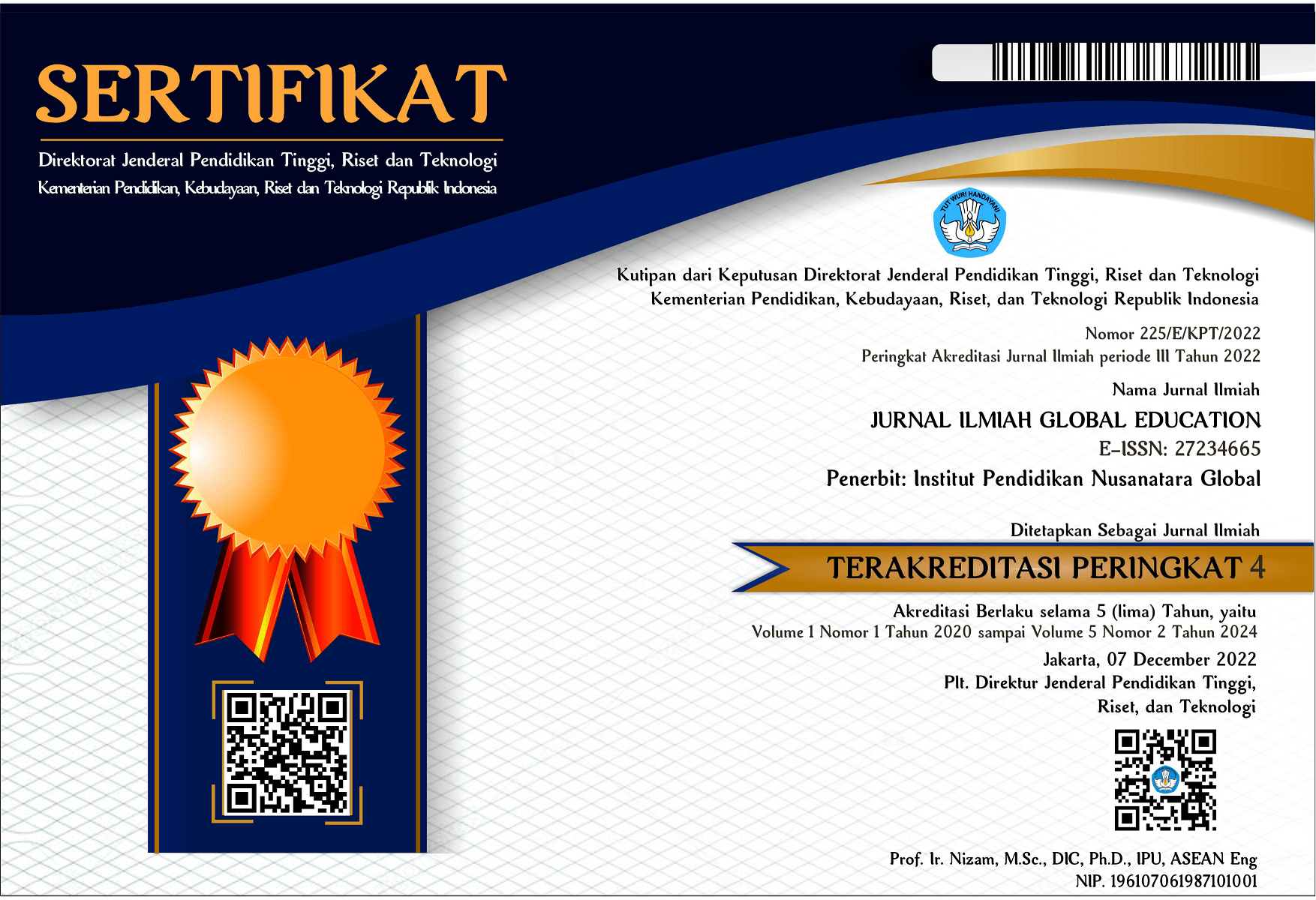Analisis Pengarusutamaan Gender di Indonesia, 2000-2023: Pendekatan Institusionalisasi
DOI:
https://doi.org/10.55681/jige.v5i2.2650Keywords:
Gender mainstreaming, institutionalization, stagnation, policyAbstract
The institutionalization of gender mainstreaming is an important and decisive step in encouraging successful implementation at both the Central and Regional Levels in Indonesia. After almost two decades (2000-2023) the establishment of gender mainstreaming policies in Indonesia still faces institutionalization obstacles. These institutional barriers are an important factor in the stagnation of implementing gender mainstreaming in Indonesia. The research method used was a qualitative approach related to gender mainstreaming policy issues in Indonesia. Data collection was carried out through literature studies of official documents, online news, books and previous research articles using an institutionalization approach. The research results explain that the stagnation of gender mainstreaming policies in Indonesia, both in Ministries/State Institutions and Regional Governments, is due to weak institutionalization efforts by the government and regional governments which has an impact on the slow integration of gender analysis into gender planning and budgeting.
Downloads
References
Abou-Habib, L. et al. (2020). Introduction: Gender, development, and Beijing +25. Gender & Development, 28(2), 223–237.
Goetz, A. M. (2003). National women’s machinery: state-based institutions to advocate for gender equality. In S. M. Rai (Ed.), Mainstreaming gender, democratizing the state? Institutional mechanisms for the advancement of women (p. 293). Manchester University Press.
Hannan, C. (2022). Handbook on Gender Mainstreaming for Gender Equality Results. UN Women.
Kim, Seung-kyung and Kim, K. (2011). Gender mainstreaming and the institutionalization of the women’s movement in South Korea. Women’s Studies International Forum, 34(5), 390–400.
Lee-Gosselin, H. et al. (2013). Resistances to gender mainstreaming in organizations: toward a new approach. Gender in Management, 28(8), 468–485.
McNutt, Kathleen and Béland, D. (2015). Implementing an Integrated Governance Strategy: The Quest for Gender Mainstreaming in Canada. American Review of Canadian Studies, 45(4), 467–485.
Minto, Rachel and Mergaert, L. (2018). Gender mainstreaming and evaluation in the EU: comparative perspectives from feminist institutionalism. International Feminist Journal of Politics, 20(2), 204–220.
Moleong, L. J. (2018). Metodologi Penelitian Kualitatif (Revisi). PT Remaja Rosdakarya.
Moser, Caroline and Moser, A. (2005). Gender mainstreaming since Beijing: a review of success and limitations in international institutions. In C. Porter, Fenella and Sweetman (Ed.), Mainstreaming Gender in Development A Critical Review (p. 111). Oxfam.
Instruksi Presiden Nomor 9 Tahun 2000 tentang Pengarusutamaan Gender dalam Pembangunan Nasional, (2000).
Undang-Undang Pemerintahan Daerah Nomor 23 Tahun 2014, 147 (2014).
Nurdin. (2022). Implementing Gender Mainstreaming in Indonesian Local Government: The Case of Tangerang Regency. Jurnal Transformative, 8(1), 31–56.
Nurdin. (2024). Memahami Isu Gender dan Ketidaksetaraan Gender di Indonesia Pasca Era Reformasi: Perspektif Pembangunan. Jurnal Ilmiah Global Education, 5(1), 332–343. https://ejournal.nusantaraglobal.ac.id/index.php/jige/article/view/2239
Porter,Fenella and Sweetman, C. (Ed.). (2005). Mainstreaming Gender in Development A Critical Review.
Siyoto, Sandu dan Sodik, A. M. (2015). Dasar Metodologi Penelitian. Literasi Media Publishing.
Staudt, K. (2003). Gender mainstreaming: conceptual links to institutional machineries. In S. M. Rai (Ed.), Mainstreaming gender, democratizing the state? Institutional mechanisms for the advancement of women (p. 293). Manchester University Press.
True, Jacqui and Parisi, L. (2012). Gender mainstreaming strategies in international governance. In G. et al. Caglar (Ed.), Feminist Strategies in International Governance (pp. 37–56). Routledge.
Downloads
Published
How to Cite
Issue
Section
License
Copyright (c) 2024 Nurdin

This work is licensed under a Creative Commons Attribution-ShareAlike 4.0 International License.













